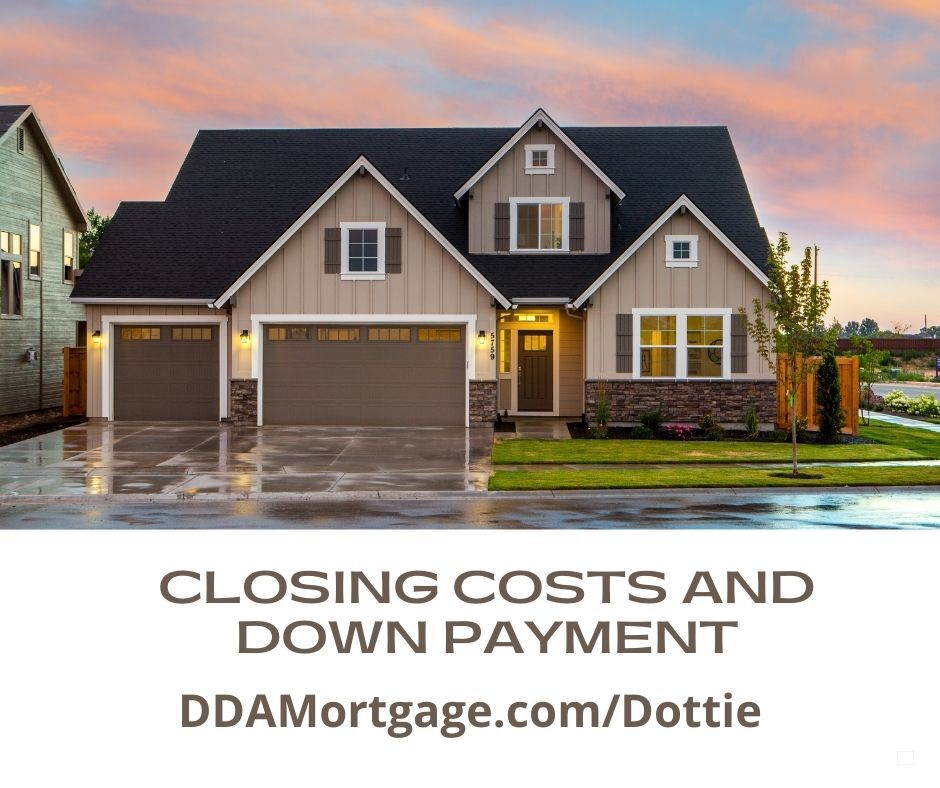Closing Costs and Down Payment–Know the Difference and Know Your Options
Getting a mortgage requires some cash on hand. How much you spend is going to depend on knowing the difference between closing costs, your down payment, and how you want to allocate your funds. Closing costs and down payments play a different role in getting a mortgage loan.
Here is the difference;

The down payment is a percentage of the purchase price and it is determined by your loan program. The down payment can be 3% up depending on how much money you have.
For example, if you are buying a home that costs $250K and you are required to put a minimum of 5% down then your down payment will be $12,500.00 and you will be financing $237,500.00 which will be your loan amount. There are programs that don’t require a down payment, but you and in some cases the property would have to qualify for it. These are specific and can be addressed by your mortgage professional.
Closing costs on the other hand are the fees for a particular service that is performed, so the banks can protect their investment and you can finance the home. They are mostly third-party fees.
What are the Closing Costs Involved in Buying a Home?
Let’s dig deeper into closing costs.
A real estate transaction is a somewhat complex process with many players and numerous moving parts. Even if you pay cash for the home, you will still have closing costs. They will be less than when you get a mortgage, but you will still have closing costs. The majority of the fees are standard apart from buying the rate down or in other words, paying points. Below are some of the standard types of fees that you will have to pay.
· Lender’s Fees
· Processing Fees
· Appraisal
· Insurance
· Taxes and Other Government Fees.
· Recording Fees
· Escrow Fees
· Title Fees etc.
There are more fees depending on your loan type, and a few other fees that are property specific. The majority of the fees are not negotiable and are calculated based on the loan type and loan amount. Finding the right loan type for your circumstances is critical to keeping your costs at a minimum. Mortgage brokers can help you identify the best mortgage strategy and identify your options. Talk to Dottie for more information,
(727) 543-1753.
Where Can I get My Money for Closing Costs?
You may not have enough saved for both, down payment and closing costs. You do have a few options to investigate where you can get the money. You can call your 401-K plan administrator to discuss your options for borrowing or withdrawing funds. You can get a “gift” from a relative or check with your
mortgage professional to see about county down payment assistance programs and if you qualify. Both the mortgage loan and the county program require approval. You need to discuss your options with your mortgage professional prior to moving any funds around. This has to be completed in a specific way so you need to know what documentation is required prior to initiating any money transfers.
The Bottom Line
Closing costs are unavoidable when you buy a home. Take the necessary steps to know your options before going into a contract. As you start saving up for a down payment, set aside enough money for closing costs as well. Be your own best advocate. As you shop around, ask lenders to outline the fees they charge and try negotiating them down whenever possible. Keep in mind, saving a few bucks is not always worth giving up a lender that you feel comfortable with. Buying a home is a long and tedious process. You need to make sure that you have a team together that will walk you through the process and not drop the ball. Go with your best instinct.
Avoid The Pitfalls Of Trying To Do-It-Yourself
It is best practice to get with your mortgage professional at the time of pre-qualification to make sure that you are completely aware of what is required and what you can expect throughout the lending process.
If you don’t have a broker or lender to talk to, give me a call
(727) 543-1753. There is no obligation. My goal is to make sure you are educated about your financing options.
To learn more about me, Dottie Spitaleri, visit https://www.ddamortgage.com/dottie.
Start Your Loan
with DDA todayYour local Mortgage Broker
Mortgage Broker Largo See our Reviews
Check out our other helpful videos to learn more about credit and residential mortgages.





